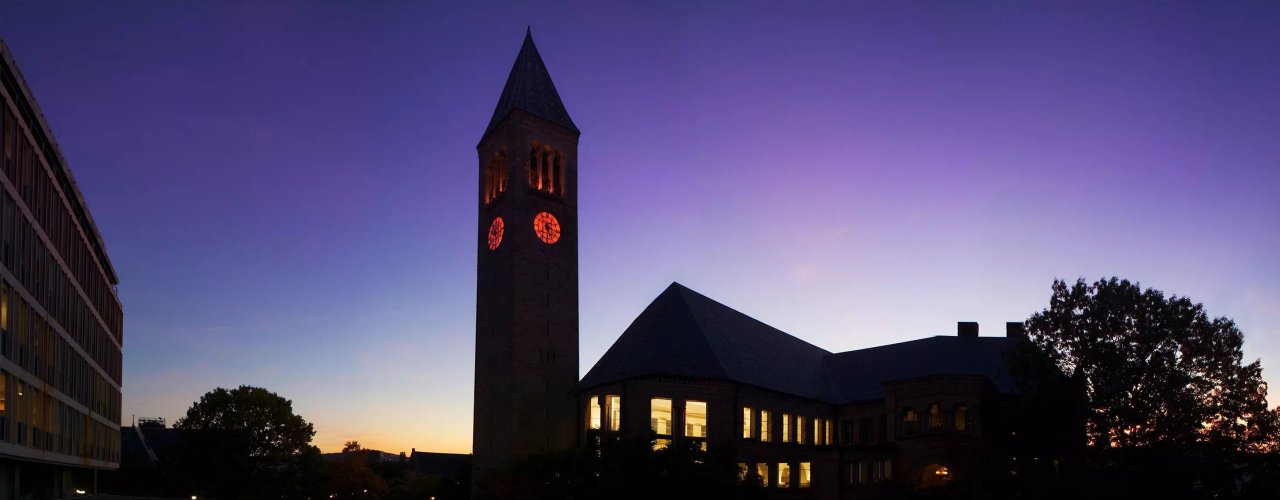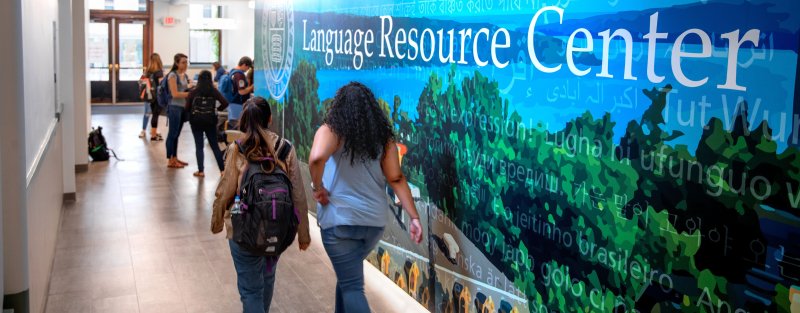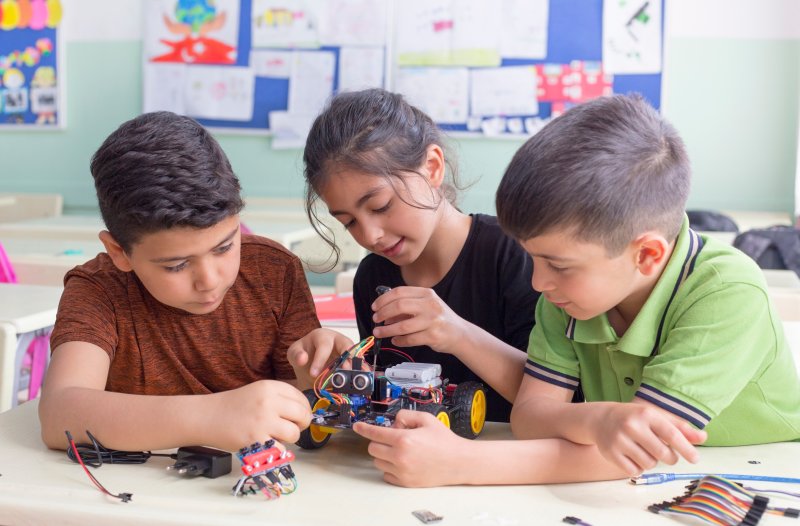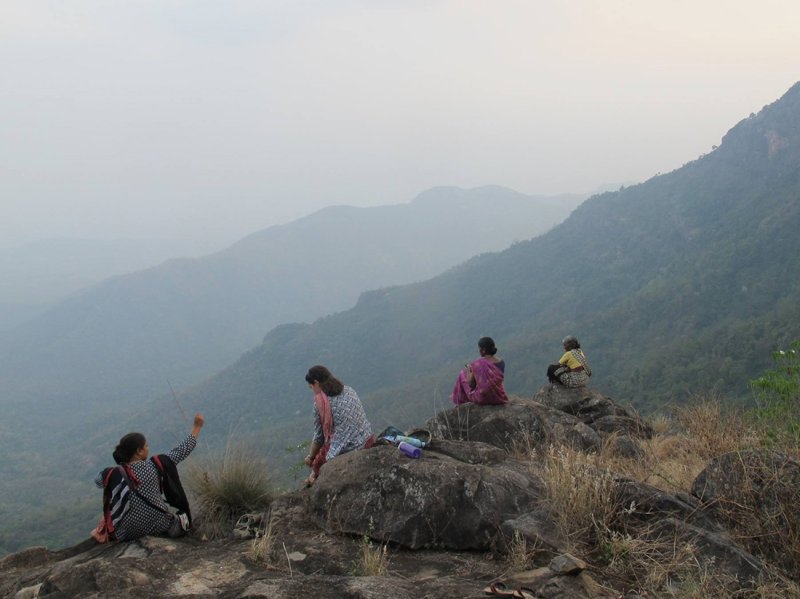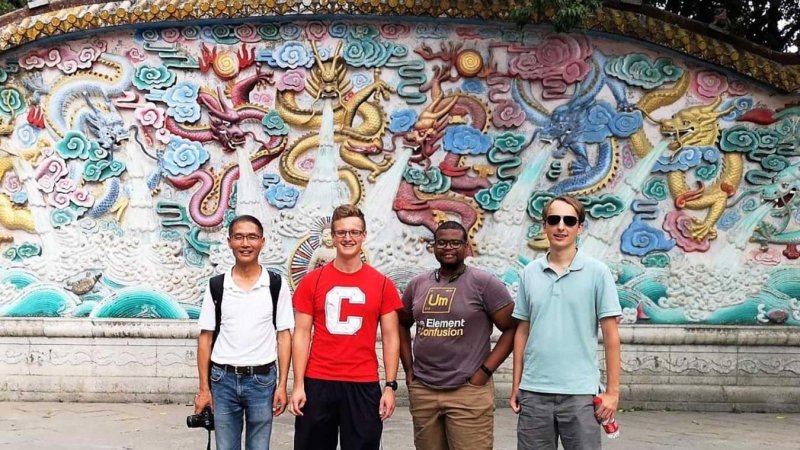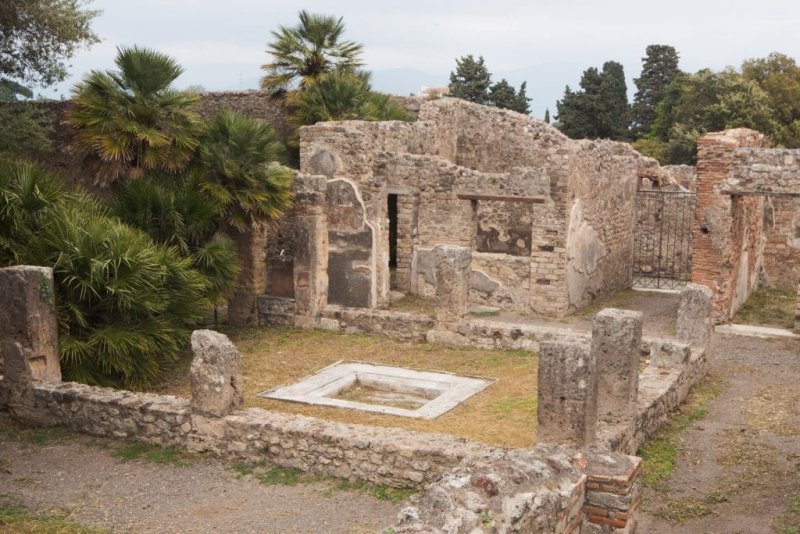International Research Transforms Learning
58 Languages
U.S. national security requires strategic language capacity.
Cornell offers 58 languages, including many of the least frequently taught—from Ukrainian to Quechua, Urdu to Burmese. Some of these languages are only taught in one or two other locations around the world.
Cornell’s world-class leadership in international studies means the United States has the language expertise it needs to respond immediately in critical parts of the world when new national interests and diplomatic strategies emerge.
Learning another language brings many benefits, from better analytical agility and multitasking to being able to communicate with friends and coworkers. Cornell’s Language Resource Center prepares students for global leadership through innovative language programs that foster cross-cultural fluency.
Cross-Cultural Education Builds Local Solutions
Students interested in education policy at Cornell and Universidad San Francisco de Quito are finding they learn more by working together.
Curiosity Across Borders
Sule Alan (Cornell Brooks School of Public Policy) tested a classroom intervention in Turkey designed to help teachers spark children’s curiosity about science. The approach, based on universal principles of how curiosity works in the brain, improved engagement and test scores.
The research responds to a concern in American schools that many students lose interest in science by high school. Published in the American Economic Review, the study was featured in New York Times coverage of U.S. education debates.
Field Learning Creates Solutions
The Cornell-Keystone Nilgiris Field Learning Program partners Cornell students with indigenous communities in southern India to create practical solutions for sustainability and conservation in a region known for its biodiversity. This unique collaboration develops leadership skills for both American and Indian participants. Research outcomes highlight community-based strategies for better environmental governance and public health.
Preparing Leaders for U.S.-China Relations
The Brittany and Adam J. Levinson Program in China and Asia-Pacific Studies (CAPS) offers a unique approach to understanding the evolving dynamics between the world’s two largest economies. Building on Cornell’s legacy of educating diplomats, it prepares students for careers shaped by the complexities of U.S.-China relations. CAPS combines intensive language and area studies with real-world experience in Ithaca, Washington, DC, and Beijing—training future leaders to engage across borders in diplomacy, policy, and global relations.
A video archive from the Cornell Contemporary China Initiative shares lectures from world experts on China’s economy, politics, and society.
Pompeii: Life Before the Eruption
How did people in Pompeii live before the eruption that buried their thriving city? U.S. and Italian students working with the Casa della Regina Carolina project are excavating and surveying a large house to understand domestic life in what is today one of the major tourist attractions in the world.
Next Up: Arts | Return to: International Research Matters for the United States

